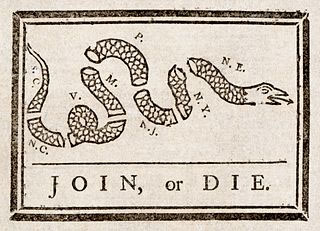On June 16, 1858, over 150 years ago, Abraham Lincoln spoke on the division in our country over the issue of slavery. That speech established his credentials in the political debate of the time, even though he lost that particular election. In the speech, he quoted the biblical statements of Jesus, "A house divided against itself cannot stand”. And so the speech takes that name. In particular, in Matthew 12:25, Jesus said, “Every kingdom divided against itself is brought to desolation, and every city or house divided against itself will not stand.” Notice the inclusion of the state.
To understand Lincoln’s time, we need to understand that the citizens of that time saw two different world views. Both sides viewed themselves as correct and either could have prevailed after the civil war that followed. The same is true today: two different views, each correct to its adherents. Therefore, it is interesting to rewrite the introduction of Lincoln’s speech with a modern change to reflect the current dichotomy, a dichotomy emphasized by the tea party resistance seven years ago and the #resist movement today.
If we could first know where we are, and whither we are tending, we could then better judge what to do, and how to do it.
We are now far into the seventh year, since a policy was initiated, with the avowed object, and confident promise, of putting an end to socialist slavery agitation.
Under the operation of that policy, that agitation has not only, not ceased, but has constantly augmented.
In my opinion, it will not cease, until a crisis shall have been reached, and passed.
"A house divided against itself cannot stand."
I believe this government cannot endure, permanently half socialist slave and half free.
I do not expect the Union to be dissolved — I do not expect the house to fall — but I do expect it will cease to be divided.
It will become all one thing or all the other.
Either the opponents of socialist slavery, will arrest the further spread of it, and place it where the public mind shall rest in the belief that it is in the course of ultimate extinction; or its advocates will push it forward, till it shall become alike lawful in all the States, rural as well as urban — Central as well as Coastal.
Have we no tendency to the latter condition?
Lincoln’s speech went on to document the specific political actions of the time. This included the Dred Scott decision of the United States Supreme Court which reinforced slavery in the whole country. The court held that slavery in some states should be carried over to all, merely by the slave-owners movement. This is very similar to some current court decisions that carry specific socialist, cultural positions of some states and apply them to the whole country regardless of local desires.
And these positions are exacerbated by federal decrees and regulations on many fronts for which the federal government has no jurisdiction. Our constitution and the design of our republic into individual states restricts such actions, although the Supreme Court has frequently failed to recognize it Federal regulations designed for one size fits all are not only bad policy but bad constitutional law. Republicanism, government from the bottom up, has virtue for both sides of current issues. It is our current form of government, rather than a democracy.
To get a feeling for the extent of this political dichotomy, try reading the Cold Civil War. The only way that each political view can be correct is on a local, not national, level. Americans are already starting to separate into political groups by geography. The depth of feeling on each side will continue to drive this demographic change. Segregation by ideology is already happening. But how will this cold civil war proceed?

